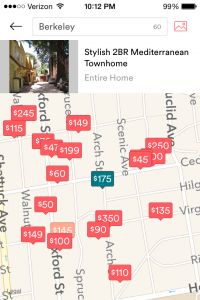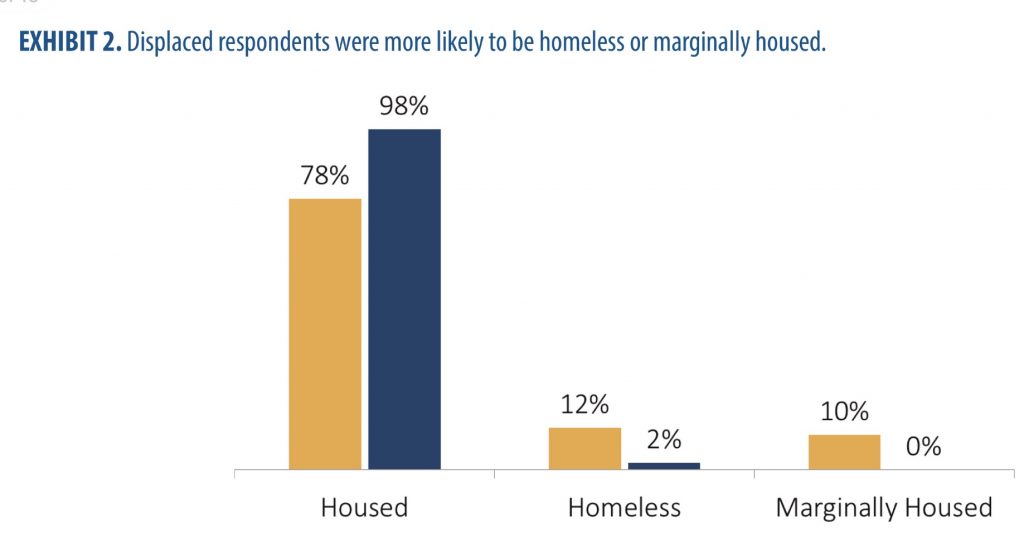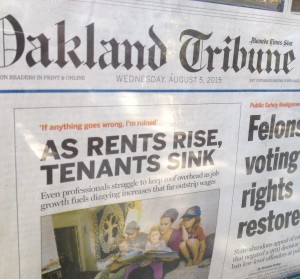City Council continues discussion on #1 (Airbnb) on June 9.


1) CHANGE Council Item 21: Short-Term Rental Regulations:
This Tuesday, Berkeley City Council will outline their directive for legalizing short-term rentals in Berkeley. Right now, rentals of less than 14 days are prohibited, but over 1,000 such illegal rentals are listed online.
Mayor Bates, who co-sponsored the item with new Councilperson Droste, assured Rent Board Commissioners at Thursday’s 4×4 Committee that his proposal will protect rent controlled units by continuing the ban on short-term rentals in unoccupied housing. The Mayor seemed surprised when Rent Board folks told him that about 400 rent controlled units were currently used only for vacation rentals, and that several large landlords are renting multiple units on Airbnb.
However, the Mayor and Councilman Capitelli were noncommittal when the Commissioners asked to be included in the Council referral and pointed out that proposals such as requiring the owner’s permission before a tenant rents their unit on Airbnb may conflict with state and local laws.
Councilman Arreguin and Rent Board Commissioners also raised the importance of enforcing the existing law and considering enforcement when creating the new law.
BTU is still formatting our position on the issue, which must have at least one public hearing at the Planning Commission before it becomes law, but we stand with the Rent Board in believing that short-term rentals are taking away needed housing.
We call for continuation of the ban on renting whole, empty apartments only for short stays. We need those homes for Berkeley students, Berkeley families, and Berkeley workers! We call for the elected Rent Board to be included in the process of making the new laws, and we call for enforcement of the existing laws when large landlords rent multiple units only for short term guests.
2) SUPPORT Council Item 19, State Short-Term Rentals Regulation:
The Council will also vote regarding support for a state bill which would compel hosting platforms like Home Away and Airbnb to share information with local governments. California Senate Bill 593, by McGuire and Leno, is essential to regulating vacation rentals.
3) SUPPORT Council Item 25: Amend the Housing Element
Councilmember Arreguin has introduced changes to the Housing Element that BTU members and friends called for at the Planning Commission in February, but City Council left out of the draft they approved. The proposal returns essential language about Berkeley values that was taken out of the Housing Element, such as, “Ensure rent control and/or other tenant protections for all tenants, including vulnerable populations,” and “All Berkeley residents should have access to decent housing at a range of prices and rents in pleasant neighborhoods that meet standards of quality.”
Most importantly, Arreguin’s amendments put back the priority that we should protect rent controlled housing from demolition and enforce those laws!
4) CHANGE Council Item 35, Community Benefits from Tall Buildings
Downtown developers must contribute more toward affordable housing.
TO LEARN MORE:
City Council Agenda
http://www.ci.berkeley.ca.us/Clerk/City_Council/2015/05_May/City_Council__05-26-2015_-_Regular_Meeting_Agenda.aspx
Rent Board on Short Term Rentals, Item 21:
“A summary of our major Rent Board concerns are as follows:
1) Loss of Housing: We hope that any Council policy recommendations to the Housing Advisory Commission and Planning Commission will focus on ensuring that whole units with kitchens that are not occupied by the host most of the year will remain available for permanent residents. Owners of multiple rental units in Berkeley should not be allowed to go into the hotel business.
2) Enforcement: Regulations must provide a workable enforcement mechanism with adequate funding and staffing. Penalties and remedies should be clear.
3) Tenants Rights: Berkeley’s new regulations must preserve rights tenants currently hold, such as the right to quiet enjoyment of their home as well as the right to sublet if they already hold that privilege. Council should include the Rent Board for input in their referral.”
Letter from the Rent Board regarding Short-Term Rentals
Text of the SB593 for Item 19: https://legiscan.com/CA/text/SB593/2015
Also on Item 19, SB 593: “This legislation is simple…It makes online vacation rental businesses follow local laws just like the rest of us.” With concerns “about loud parties, traffic and other problems,” on the rise, this move could not come at a better time….If passed, Senate Bill 593 will help ensure short-term online rental companies follow some simple rules and regulations to preserve our neighborhoods, ensure consumer safety, and protect the well-being of longtime residents in communities across California.”
http://www.overnightoversight.com/ca-legislation-addresses-short-term-online-rental-concerns/
On Item 25, the Housing Element: https://www.berkeleytenants.org/?p=1195
On Item 35, Community Benefits from Downtown Buildings:
http://berkeleydailyplanet.com/issue/2015-05-22/article/43322?headline=Significant-Community-Benefits-an-open-letter-to-the-Berkeley-City-Council
In Other News
Thanks to BTU Members Who Sent in Most of These Stories
Windfall Profits Tax On High Rents (Fund Affordable Housing)
“The only way off the treadmill is to build or buy housing that will be owned by non-profit organizations, land trusts and limited-equity cooperatives. And that takes money, a lot of money. So let’s tax the rising rents that increase the need for affordable housing in the first place.”
http://www.berkeleydailyplanet.com/issue/2015-05-22/article/43326?headline=Fund-Affordable-Housing-with-Windfall-Profits-Tax-on-Rising-Rents-News-Analysis—Stephen-Barton
Berkeley Development: Call for Moratorium on Luxury Construction
“…while the City is fully caught up and already ahead on its higher income units, we haven’t even made our quota for moderate or lower income units for 2006 yet. This makes the big push to build block after block of high rent homes and apartments unfathomable.”
http://www.berkeleydailyplanet.com/issue/2015-05-15/article/43314?headline=Berkeley-Needs-a-Moratorium-on-High-Rent-Units–Rhiannon
California: Rents Go Up Fast, Income Goes Up Slow
“Since the end of 2010, rental prices have surged at nearly twice the pace of average hourly wages, according to data from the real estate firm Zillow and the Labor Department.
More than 30 percent of renters in California, Florida, New Jersey and New York state devote at least half their incomes to housing and utilities, according to the analysis.”
http://m.sfexaminer.com/sanfrancisco/1-in-4-us-renters-must-use-half-their-pay-for-housing-costs/Content?oid=2928601
California: Wall Street Invests in Single-Family Home Rentals
“California tenants renting single-family homes from the three biggest Wall Street landlords in the state, Blackstone/Invitation Homes, Waypoint Homes, and Colony American Homes, pay higher rents than their neighbors and face challenges getting repairs,” according to a new research report by Tenants Together.
http://org2.salsalabs.com/o/5247/p/salsa/web/common/public/signup?signup_page_KEY=9191
SF: Mission Renters in NY Times
“When a family in a rent-controlled apartment leaves or is forced out, the rent is jacked up to market rate, apartments become condominiums or are advertised by the landlord on Airbnb as a good place for short-term visits.”
http://mobile.nytimes.com/2015/05/23/us/high-rents-elbow-latinos-from-san-franciscos-mission-district.html
City of Alameda Considers Eviction Protections
“Advocates for local renters, who make up about half the Island’s population, have pressed for rent control and other protections. But at least three members of the council have questioned whether rent control would be an effective solution to renters’ woes, or whether the city should get involved in rents issues at all.”
http://thealamedan.org/news/rents-blog-just-cause-eviction
San Jose Renters Hold Rally
http://kron4.com/2015/05/13/activists-hold-rally-in-support-of-san-jose-renter-protections/
Lafayette Considers Rent Control or Rent Freeze May 26
“…City Council acknowledged that high rents are a problem all over the Bay Area, but also expressed sympathy for the renters, saying that 90% increases were “crazy” and “beyond the pale.” In the end, the Council asked for more information from small towns similar to Lafayette that have adopted rent control or stabilization policies (such as Los Gatos). It also asked the City Attorney to investigate whether the City could impose a temporary moratorium on rent increases.”
http://lovelafayette.org/Home/Components/News/News/966/18?backlist=%2Fhome











